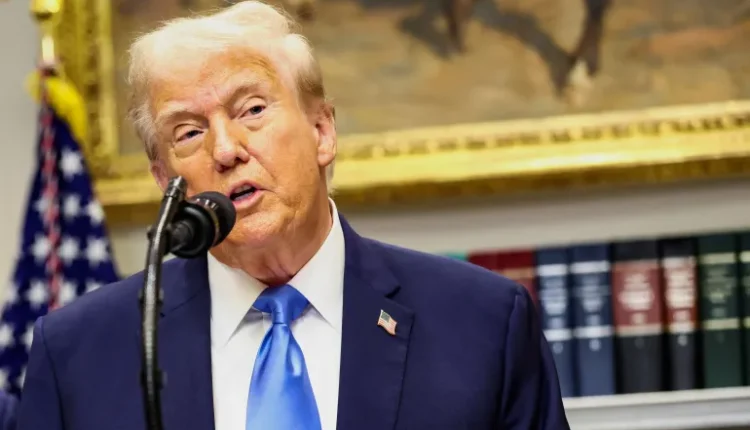
Today, winning the Nobel Prize is considered the greatest honor one can attain in the world.
It teaches us that knowledge and good deeds are eternally remembered.
The prize was established by Alfred Nobel, a renowned Swedish scientist, born in 1833, who invented dynamite.
However, when dynamite began to be used for destruction in wars, Alfred Nobel was deeply grieved.
He realized that his name had become associated with devastation, and thus he resolved to devote his fortune to the service of humanity.
One day, he came across a mistaken newspaper obituary that read:
“The inventor of dynamite is dead the man who brought destruction to the world.”
Upon reading this, Nobel was overcome with sorrow.
He realized that people perceived him as a harbinger of ruin, though his true desire was to benefit humanity.
That very day, he decided to dedicate his entire wealth to the welfare of mankind.
When he passed away in 1896, he stated in his will:
“My estate shall constitute a fund, the income of which shall be annually distributed to those who have rendered the greatest service to humanity.”
Thus, in 1901, the Nobel Prize was awarded for the very first time.
Initially, it was presented in five categories:
1. Peace – to the person or organization that contributes most toward the establishment of world peace.
2. Literature – to the most distinguished writer or poet.
3. Physics – for outstanding achievements in the field of physical science.
4. Chemistry – for remarkable contributions to chemical research.
5. Medicine – for advancements in human health and medical science.
Later, a sixth category was introduced:
6. Economics – instituted in 1959 by the Central Bank of Sweden.
From 1901 to 2025, Nobel Prizes have been awarded 628 times across all fields.
Including joint and organizational awards, a total of 1,015 individuals and organizations have received this distinction.
So far, approximately 65 laureates from Asia have been honored with the Nobel Prize.
Among them, Japan leads with around 32, followed by Israel (12), India (9), China (8), and Pakistan (2).
This year, 234 individuals and 34 organizations were in contention for the Nobel Prize.
Their names, as per tradition, are kept secret for fifty years, never disclosed beforehand.
Nonetheless, media outlets are perpetually vigilant, claiming that among the contenders were Donald Trump, Ukrainian President Volodymyr Zelensky, Qatari Prime Minister Sheikh Mohammed, and 22-year-old Swedish climate activist Greta Thunberg.
This group was notably linked to the famous flotilla of fifty ships Flotilla Samad comprising thousands of participants from forty-four countries, journeying to express solidarity with the suffering people of Gaza.
Among them was Pakistan’s distinguished Senator Mushtaq Ahmad Khan.
Now let us turn to the crux of this column President Donald Trump.
As the Urdu proverb goes, “The cat dreams of cream,” and it fits Trump perfectly.
A man directly or indirectly involved in the war in Afghanistan, the civil conflict in Syria, or possible strikes on Iran’s nuclear facilities how could such a person ever be deemed worthy of a Nobel Peace Prize?
Although Trump never explicitly claimed the prize as his right, his previous statements and actions strongly suggest that he considered himself a legitimate contender.
He once criticized Barack Obama’s 2009 Nobel Prize, calling it an award given “for doing nothing,” and portrayed himself as the U.S. president who had “done the most for peace.”
White House spokesperson Steven Cheung castigated the Nobel Committee’s decision, stating that “the committee has chosen politics over peace.”
Therefore, even if Trump did not publicly assert his claim, his tone and reactions clearly indicated that he viewed the Nobel Peace Prize as a deserved accolade.
This year, the 2025 Nobel Peace Prize has been awarded to María Corina Machado, the opposition leader of Venezuela.
She received this honor for her tireless struggle for democracy and her peaceful resistance against authoritarianism in Venezuela.
The Nobel Committee praised her for her “unyielding efforts toward a fair and peaceful transition from autocracy to democracy.”
Machado is currently in hiding within Venezuela, facing threats from the government.
She dedicated the prize to the people of Venezuela and to former U.S. President Donald Trump, whom she credited for exerting international pressure in favor of democracy in her country.
Rumors had circulated that Trump might also be shortlisted for the peace prize this year, particularly in light of his purported involvement in facilitating a ceasefire between Israel and Hamas.
However, the Nobel Committee ultimately chose Machado, prompting criticism from the White House that accused the committee of “placing politics above peace.”
Machado’s award stands as a global recognition of Venezuela’s continuing struggle for democracy
a triumph not only of perseverance but of the indomitable human spirit that resists tyranny through peaceful means.





Comments are closed, but trackbacks and pingbacks are open.